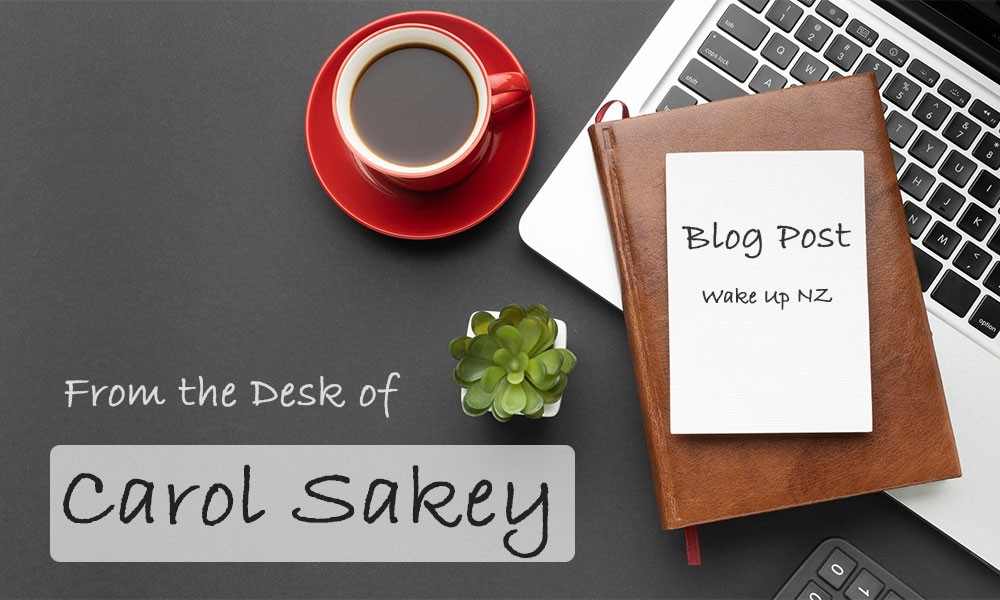
THE TREATY OF WAITANGI AND PARTNERSHIP ‘WATER’
NOTE: THIS FORMULA HAS NOW ENTERED JURISPRUDENCE: Is regularly cited by subsequent courts. In 1993 the Court Of Appeal said “The Treaty created an enduring relationship of fiduciary nature akin to a partnership, each party accepting a positive duty to act in good faith, fairly, reasonably and honourably towards each other”. And this is as far as any ‘binding’ decision of the Court is prepared to go. Subject to what is discussed later any more sweeping statements favourable or unfavourable to Māori in later cases which are no necessary to the actual decision can be ignored by later courts. Therefore this ‘imaginative analogy has been misunderstood and in some cases mischievously so to create the myth that there is a legal ‘partnership’ between all Māori people on one hand and the Crown on the other, exposing ‘shallow reasoning’. So when one questions:- What are the terms of the ‘partnership?, What are the ‘obligations’ of Māori people to the Crown?. What are the shares that each enjoys and in respect of what property?. Is it all of the myriad property which goes to make up the totality of the assets of New Zealand? Where is the place for existing ‘private property rights for Māori and Non-Maori?
How does this commercial notion of ‘partnership’ seep into the political structures, and what happens if New Zealand becomes a Republic? All has been distorted beyond all reason and used as means of supporting claims by less than 15% of the population to enjoy unearned privileges at the expense of the remainder of the population, many of who, be it noted are descendants of the settlers whom the Crown was anxious to protect in entering into the Treaty. ‘Māori Rights to special treatment has become a moving target’. In 2014 the Supreme Court in litigation surrounding privatization of part of assets of some of the Crown held ‘Power Companies’. This whole process was rushed through parliament to allow the government to make goof an election promise. Various Māori interests challenged the governments right to sell shares in the power companies to the public for, among other reasons it would breach the ‘principles’ of the Treaty.
An order was sought preventing the sale until the publication of the Waitangi Tribunal’s final report on more general Māori claims to ‘Fresh Water’. The claimants lost in the High Court and there was no Court of Appeal. Claimants appeal went straight to Supreme Court, the claimants lost their case and the sale went ahead on the grounds that whatever Māori Rights to ‘Fresh Water’ the Government might decide to recognise those rights would not be prejudiced by the proposed public float of shares. On the subject of treatment of people with Māori descent the judgement was larded with statements which were unnecessary to the decision of the dispute before the Court. It treated the recommendations of the Waitangi Tribunal as if it had the status of a Court of Law. IT DOES NOT
Generic finding is that Māori had rights- interests in their water bodies,. English equivalent in 1840 was ownership rights , and that such rights were confirmed, guaranteed and protected by the Treaty of Waitangi, save to the extent that here was an expectation in the Treaty that the waters would be shared with the incoming settlers. The Tribunal has recognise that the customary authority exercised in 1840 must be adapted to meet modern circumstances and the need for resources to be shared with ALL New Zealanders.
The Recommendations of the Treaty:- Are now elevated into binding legal principles.The Court of Appeals recognition stated a fundamental principle guiding the ‘interpretation of legislation which addresses issues involving the relationship of Māori with the Crown, must accordingly form the basis of the approach of NZ Courts to any subsequent legislation requiring that the Crown act consistently with Treaty ‘principles’. This judgement gives no support to narrow approaches to the meaning of such clauses. But recognises that in relation to ‘Fresh Water’ this conflicts with the Governments position set out in the ‘Red Book’ (A manual giving guidance in relation to govt policy)
New Zealand law does not provide for ownership of water in rivers and lakes. The Crown has publicly acknowledges that Māori traditionally viewed a river, a lake as a single entity, have not separated that into beds, banks and water. That Māori consider a river, lake as a whole and can be owned by Iwi/Hapu in the sense of having ‘tribal authority’ over it.
- However, whilst under NZ Law the bans and bed of a river can be legally owned, the water can NOT. This reflects the COMMON LAW position that water until contained (eg put in a tank or bottled) can not be owned by anybody. For this reason it is N OT possible for the Crown to offer Māori Claimants or any other claimants legal ownership of entire lake or river- including water- in a settlement.
The Court accepts this law- but records of the Crowns position is:-The Crown acknowledges that Māori have interests and rights in relation to particular waters. And they have not been prepared to negotiate for recognition of Māori property in waters or for their participation in the economic benefits obtained from the use of waters (as through royalties paid to them). But are prepared to encourage, facilitate joint ventures in the generation of electricity using water in which Māori are interested in the future. There is also preparation to negotiate co-governance and co-management arrangements under which Māori have a substantial say in the control of particular rivers through Treaty settlements (Eg Waikato Tainui-Commercial Arm Tainui Trust).
As well as the future of ‘Fresh Water’ management (Replacement of Resource Managements Act =3 New legislations), this is pursuant to a process known as ‘Fresh Start’. For ‘Fresh Water’ conducted by the Land and Water Reform. This has included extensive consultation with Iwi. Also parallel discussions between government ministers and the ‘Freshwater Iwi Leaders Group’. Mr. English summarised the Crown position as acknowledging that ‘Māori have rights and interests in water and geothermal resources”. He identified those interests being addressed on the ‘ongoing Waitangi Tribunal Inquiry’ and a number of ‘parallel mechanisms.
The Crown’s Position:- Is that any recognition must involve mechanisms that relate to ongoing use of those resources and may include decision making roles in relation to care, protection, use, access and allocation, and /or charges or rentals for us. In 2016-The Ministry for the Environment was responsible for progressing policy development around the issues of water with Iwi/Maori Leadership Group. The interference of the Courts is non democratic. Judge Willy states this is the business of an elected government not that of the Courts. The Determined Assault Goes On and On..On the Rule of Law which mandates in the matter of ‘Fresh Water’ allocation as in all areas of public policy, that the law apply equally to all regardless of colour, creed or status. (Law not Legality=Legislation). Clandestine discussions between government representatives and the Iwi Leaders Group- Yet NO person (people) will be permitted to own fresh water, have gone so far with virtually no comments by the media or wider public (Published 2016)
A well-intentioned attempt by the Courts in the 1980s to fill the lacuna created by the careless inclusion of the notion of “the principles of the Treaty’ in The State Owned Enterprises Act 1986 is open to apparently endless reinterpretation by activist Judges. This is socially divisive and serves only to raise expectations where none should exist. It constitutes another skein in the rope of separatism which is choking off any chance of our remaining one people governed by one law for all.
As barristers of the High Court they will of course keep in mind the statutory obligation imposed on them by S4(a) of the Lawyers and Conveyancers Act 2006 which provides:-
Fundamental obligations of lawyers: Every lawyer who provides regulated services must, in the course of his or her practice, comply with the following fundamental obligations:- (a)the obligation to uphold the rule of law and to facilitate the administration of justice in New Zealand
REFERS TO:-An article published on 3rd April 2016 by Judge Anthony Willy is a Barrister & Solicitor, served as a Judge on four courts:- District, Environment, Tax & Valuation. He is a former lecturer in Law at Canterbury University. He acts as an Arbitrator, a Commercial Mediator, Resource Management Act Commissioner and is the Director of Several companies
Source of information https://www.nzcpr.com/water-the-rule-of-law-and-the-treaty/ ) Researched By Carol Sakey https://wakeupnz.org
-
-
Friday - May 19, 2023 - THREE WATERS REFORM
(4) - TREATY OF WAITANGI
(4)





Leave a Comment